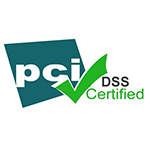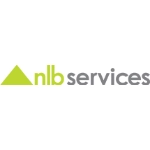© 2025 Next Level Business Services Inc. All Rights Reserved.
Skills-First Hiring: Build Strong Teams & Grow Your Talent Pool
By NLB Services
Traditional hiring strategies fail to get on board the best talent in today’s rapidly evolving job market. Organizations are now focusing on a skill-first hiring approach to unlock a broader talent pool and build a diverse team. This approach aims to provide a more accurate measure of a candidate’s potential to succeed in a role. By giving priority to skills over conventional credentials, organizations can create robust teams and expand their talent pool. In this blog, we will explore the concept of skills-first hiring, its benefits, and how you can incorporate it into your hiring strategy.
What is Skills-First Hiring?
As per Myperfectresume, Skills-based hiring is a recruitment strategy that focuses on assessing and prioritizing candidates based on their professional skills and capabilities rather than formal qualifications such as credentials or years of experience. This is different from traditional hiring where hiring managers screen and select applicants based on their CVs, often yielding a different set of candidates.
Skil-based hiring is often advantageous as it does not necessarily focus on traditional career paths and backgrounds, thus, opening doors to a wider talent pool that otherwise, would not have made it. By assessing candidates based on their actual skills, companies can identify the most suitable candidate for the role.
How Skills-First Hiring Builds Strong Teams
Team members recruited through skills-based hiring strategy are likely to excel in their roles, leading to improved productivity This also lays focus on high growth and soft skills instead of traditional work styles. Since employees are hired for their strengths, they are more likely to feel valued, and engaged, leading to increased retention. This approach allows for a more diverse range of candidates, and brings unique perspectives to the table and different problem-solving viewpoints to the challenges, thus building strong teams.
Steps to Implement Skills-First Hiring
The first thing is to identify key skills needed for each role. Involve current employees in consultation and managers to understand the skills that contribute to the success of the role. Customize and revamp your job descriptions to emphasize those skills and competencies over specific educational or job history requirements to let the candidates know that your focus is higher on skills than anything else. Ensure that hiring managers understand and work with a skill-first hiring approach. Adopt skills assessment tools that accurately measure the key skills.
This can include practical tests, project-based assessments, and skill-specific questionnaires. Start small, hire in small quantities for limited roles to test the skill-first hiring approach. Gather feedback from hiring managers and make necessary adjustments before rolling out the approach at full scale.
Growing Your Talent Pool with Skills-First Hiring
Search beyond traditional recruitment challenges to find candidates with the right skill set if you are aiming for skills-first hiring. Leverage coding boot camps, community programs, college communities, and online platforms like LinkedIn and GitHub to find the best-suited talent.
Embrace the candidates hailing from diverse backgrounds, including the ones who come from non-traditional career paths or have gaps in employment history. Promote continuous learning and skill development within your organization to keep your talent pool dynamic and capable for niche roles.
Measuring the Success of Skills-First Hiring
Now that you have implemented a skills-first hiring approach, it is important to assess whether this has been successful for the organization or not. Track the performance of employees hired through the skill-first approach in comparison to the traditionally hired.
Another aspect that can be tracked to measure the success is to check the employee retention rates, whether those hired based on skills are more engaged, satisfied, and staying longer with the organization. Assess the impact on diversity within the teams and organization. A significant 83% of employees express confidence in remaining with organizations adopting a skills-first approach, states a report from EY.
Retention rates, productivity, performance, work efficiency, and problem-solving approach are some top recruitement metrics that you can check to measure hiring success. This is not a one-time process, it takes time, effort, and assessment to ensure the skill-based hiring approach is successfully implemented and the hiring process is refined continuously through constructive feedback from hiring managers.
Conclusion
Skills-first hiring approach can be beneficial for organizations as it is a forward-thinking approach that can strengthen and diversify teams. It focuses on skills and competencies that matter the most. Organizations can find the best candidates as per their needs. Transformation leaders have reported a positive impact on talent retention and development (63%), and improvement in employee performance (58%) due to the adoption of skills-first hiring initiatives, revealed in an EY report.
This requires thoughtful planning, meticulous execution, and commitment to continuous improvement and the rewards are worth the effort. Embracing a skills-first hiring approach builds stronger teams and broadens your talent pool, this also ensures that your company is well-equipped for future challenges.
Talent Solutions








